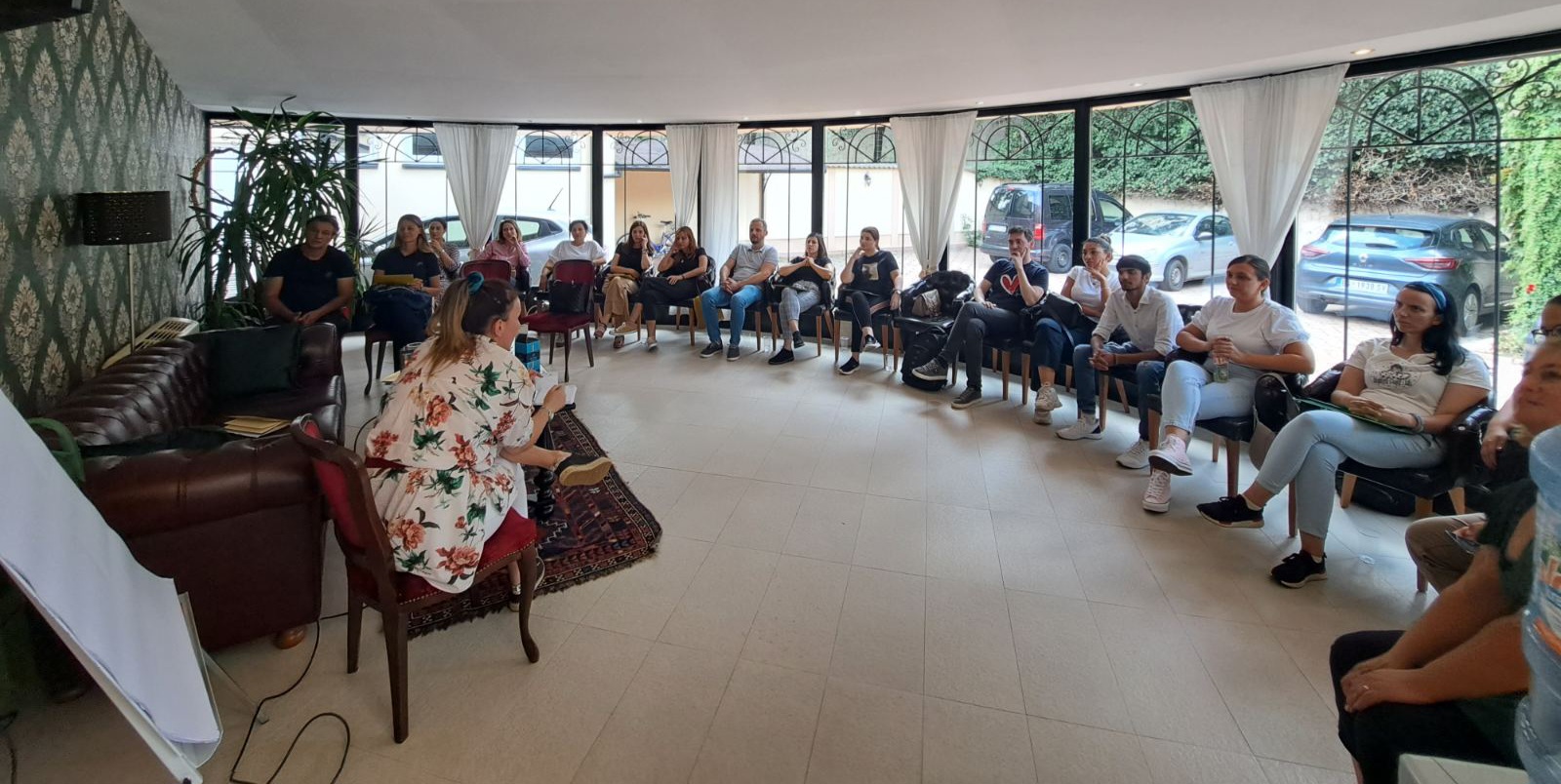Hotline: +381 61 63 84 071
Practitioners in Combating Gender-Based Violence and Human Trafficking with a Special Focus on Migration

Practitioners in Combating Gender-Based Violence and Human Trafficking with a Special Focus on Migration
SOMBOR, August 28-29, 2023 - The third in a series of training sessions titled "Practitioners in Combating Gender-Based Violence and Human Trafficking with a Special Focus on Migration" was held in Sombor. The training was organized by the citizens' association "Atina" with the support of the British Embassy in Belgrade.
This two-day training gathered representatives from the government and non-government sectors, including colleagues from the Commissariat for Refugees and Migration of the Republic of Serbia, the Center for Social Work Sombor, the Safe House Sombor, the Higher Public Prosecutor's Office Sombor, the Sombor Educational Center, the NGO Link, Doctors Without Borders, and the Red Cross Sombor.
On the first training day, Jelena Hrnjajk, Program Manager at NGO Atina, opened the program by presenting the work plan and lecturers for the next two days. The first lecturer, Prosecutor Gorjana Mirčić Čaluković, emphasized the importance of understanding regulations and procedures and networking among all actors involved in combating gender-based violence and human trafficking.
Jelena Šurlan from the Commissariat for Refugees and Migration of the Republic of Serbia spoke about the work of the Commissariat, the challenges they face, especially in the context of migration, and the importance of standard operating procedures applied in their work. Professor Slobodan Savić from the Institute of Forensic Medicine introduced participants to the characteristics and methods of reporting and medically documenting cases of gender-based violence.
On the second training day, participants analyzed their main observations and conclusions from the previous day. Sanja Savić from the Center for Protection of Victims of Human Trafficking presented the center's structure and functioning, emphasizing the importance of multisectoral cooperation and coordination among all relevant actors. Participants were divided into groups to apply their acquired knowledge to practical cases.
Recommendations and Suggestions from the Training:
1. The necessity of connecting and creating a list of essential contacts for individual cases of human trafficking and gender-based violence.
2. Organizing more training sessions in this field to improve knowledge and skills related to migration and the identification of victims of human trafficking and gender-based violence.
3. Clarity and precision in standard operating procedures for reporting potential suspicions of human trafficking and victims of gender-based violence.
4. Establishing and strengthening multisectoral cooperation at the local and national levels.
This training represents a significant step towards better identification and protection of victims of human trafficking and gender-based violence in migrant and refugee populations, while also strengthening cooperation between local organizations, state institutions, and international partners.












 FACEBOOK
FACEBOOK TWITTER
TWITTER YOUTUBE
YOUTUBE